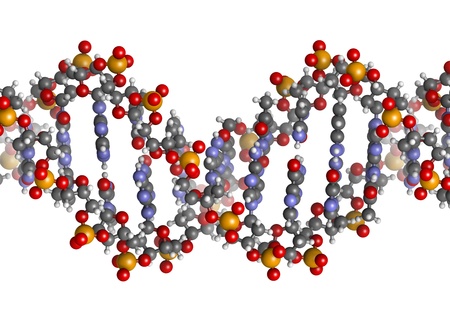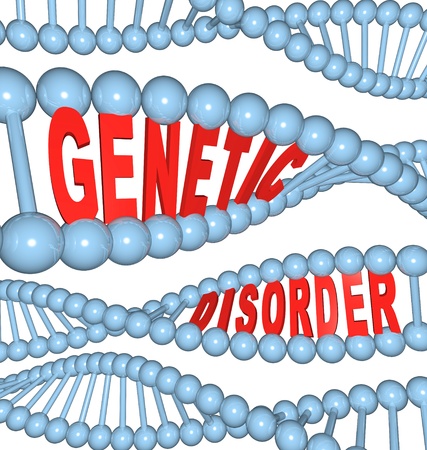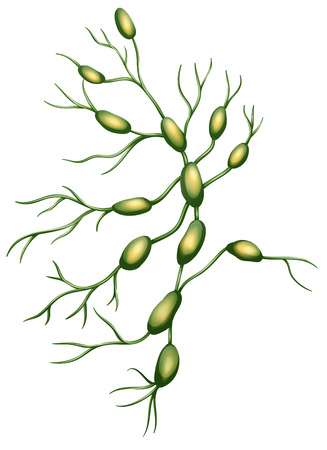What are Genes?
Genes are the specialized segments present on the DNA at specific locations. The chromosome is a DNA molecule that contains complete or partial genetic material of any organism. Each individual has 23 pairs of chromosomes. A pair of 23 chromosomes is inherited from one parent each (one from the mother and one from the father). The genes that are transferred to the body of the child with this inheritance is responsible for the resemblance they hold with their parents. Example one child may inherit a blue eye gene from the mother where as the other may get a brown eye gene from the father. The same theory holds true for transmission of medical conditions and disorders. These are called genetically inherited diseases.

What is Gene Mutation?
When changes take place in the DNA, the genetic coding gets altered and this is what gives rise to gene mutations. These mutations can be neutral or same as the original. They may also lead to a change in the protein structure and have a beneficial effect or at times a useful protein may get deleted giving rise to a genetically inherited diseases or disorder in the individual.
Gene mutations are affected by environmental factors. Example if a person is exposed to cigarette smoke on a daily basis then the genes of the lung cells will undergo mutation and predispose the person to lung cancer even if he has no history of cancer in the family. Genes can also undergo mutation by effect of radiation (accidental radiation leak accidents or smoke that is loaded with chemicals). The genetically inherited diseases caused by mutations can be passed on to the children and predispose them to newer and rare genetic disorders.
Factors Affecting Genetically Inherited Diseases
It is not true that every gene that is inherited will cause a disease in the child. This is determined by certain factors and they are-
- Which gene is inherited?
- Whether the inherited gene is dominant or recessive in nature?
- Effect of environmental factors on the particular individual
Types of Genetic Inheritance
The inheritance of the genes can happen in the following ways-
(1) Single gene inheritance:
This type of genetic inheritance is also called as monogenetic inheritance. It is caused by the changes that occur in the DNA sequencing of a single gene. Single gene inheritance disorders tend to affect one in 200 births that take place. There are over 6000 recognized single gene disorders where a single gene is responsible for causing the trouble. Here is a list of diseases that are classified as monogenetic or single gene disorders.
- Sickle cell anemia
- Thalassemia
- Cystic fibrosis
- Haemochromatosis
- Huntington’s disease
- Marfan syndrome (one of the most rare genetic disorders)
There are three identified patterns in which single gene disorders are inherited and they are:
(a) Autosomal recessive inheritance: In this type of inheritance, if both the parents are “carriers” of a faulty gene. If the child gets one faulty gene then he also becomes a carrier of the disease but does not get the active disease. However if both the parents have one faulty gene each, then there are 25% chances of each child inheriting the disease and 50% chances of the child becoming a carrier of the disease. Thalassemia is the commonest example in this category. It is a disorder where the red blood cells are affected and not able to function normally leading to a low hemoglobin count in the individual and anemia.
(b) Autosomal dominant inheritance: In this type of genetically inherited diseases, if one of the parent has a faulty gene, then the chances of passing it on to the child is 50% since the affected gene is dominant in nature.
(c) X-linked inheritance: There are some genetic conditions that are caused by the mutation of X-chromosomes. X chromosomes are sex chromosomes and the pattern of inheritance is recessive but slightly different from autosomal recessive inheritance.
X linked inheritance affects males more commonly than females because females have two X chromosomes of which one is normal and able to suppress the mutated chromosome. So females who inherit the mutated genes normally become carriers of the disease. On the other hand when a male inherits an abnormal gene from his mother then the disease is actively manifested because he does not have a protective X chromosome. If the gene is received from the father, then the disease will not be dominant as he will receive a Y chromosome. So the manifestation of the disease depends totally on the inherited genes.
(2) Multiple Gene Inheritance:
Some genetic disorders may be multifactorial and complex in nature. They are associated with problems in more than one gene at the same time. Environmental and lifestyle factors play a very important role here. Examples of such diseases caused by mutations are:
- Autoimmune diseases
- Cancer
- Asthma
- Inflammatory bowel disease
- Obesity
- Hypertension
- Diabetes

Genetic Disorders Testing
There are specialized genetic testing clinics that carry out tests to understand the genetic pattern and inheritance of diseases. There are a number of reasons why people go for gene testing. Some do it to find out the diseases they may have in the future even if there is no treatment for them. Others do it to take important decisions like family planning. If the family history is positive and one of the parent is a known case of thalassemia then it is wise to get the other partner tested before planning a child. If both parents are carriers that is thalassemia minor there is a possibility that the child may have Thalassemia major. In such cases the genetic counselor will explain the possibilities and problems that their child could develop based on the genomic screening tests. Other options like surrogacy or adoption may also be advised. Thus genome testing becomes very important to prevent disorders in the unborn child. Other important uses of genetic tests are-
- Finding out if a person has a carrier gene for a disease which may be passed on to the child.
- Testing for genetically inherited diseases in adults before the symptoms start showing up.
- Screening the embryo in utero.
- Diagnosing genetic disease in unborn child.
- To reach a diagnosis regarding the type of the disorder a person is suffering from and to decide the line of treatment.
Genetic tests are usually voluntary but they need to be carried out with proper informed consent after explaining the scopes and limitations of the testing. The testing is done by checking a sample of blood, hair, skin or amniotic fluid. The sample is sent to the laboratory where it is processed and then the DNA is isolated and checked under a microscope. In a baby the testing is done by analysis of the fluid surrounding the baby in the uterus. This may help to identify the presence of genetic and chromosomal abnormalities like Down’s syndrome. Newborn genetic screening tests are done by taking a small quantity of blood sample immediately after the baby is born. In these screening tests the results are notified to the parents only if they are positive. If found positive, further workup needs to be carried out.
Treatment of Genetic Disorders
Treatment for genetic disorders is challenging and a matter of study and research since many years. The main aim of treatment remains improving the quality of life of the patient and helping him cope with day to day activities.
Gene therapy is a treatment mode which entails introduction of a healthy gene into the body with a view to reduce the effects of the defective gene. But the challenge faced here is that the gene is not directed at the exact location of the defective gene making the efficacy low. Studies are on to understand as to how a normal gene can be introduced into the body containing so many defective genes in order to totally correct the genetic diseases.


